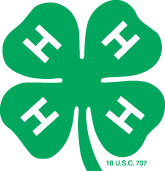Imagination in Action Theatre Arts
National 4-H Council Theatre Arts curriculum. Through the curriculum, youth leaders are trained to guide youth in a variety of theatre activities . Sample activities include, for example, pantomime, active listening, creative movement, set design, directing, mask making, puppetry, improvisations, costume design, and playwriting. Curriculum focuses on life skill development in such areas as self-expression, teamwork, communication, empathy, critical thinking, appreciating diversity, decision-making, and leadership. Content appropriate for grades K-13
Roleplaying for Real Life
The use of improvisational theatre to address youth issues (e.g., peer pressure, identity). For middle school/high school age youth. RFRL contributes to bullying prevention, conflict resolution, mindfulness and social/ emotional intelligence. RFRL enables youth players to explore difficult situations from the safe distance of dramatic enactment. Role reversal leads youth to see situations from other's perspectives. Peer education theatre is a particularly effective approach, for it "brings to life" situations common to youth's life experiences and engages youth audiences in post- performance interactive discussions. Option available for developing Roleplaying for Real Life county 4-H teen troupes
Theater Appreciation Program for Middle and High School Age Youth
Includes theatre appreciation lesson plans and field trip to the State Theatre, New Brunswick. Students learn about theatre careers and elements of theatre production.
STEAM (Science, Technology, Engineering, Arts and Math)
These Expressive Arts 4-H activities integrate arts approaches with STEM learning. Expressive Arts 4-H designs individualized STEAM programs supporting the teaching of science through creative arts approaches (e.g., writing and drawing in journals during nature walks, moving creatively to simulate marine life, creating musical bamboo rhythm sticks during forest exploration, etc.). Content appropriate for grades K-13.
Explorations, a collaboration between Rutgers University 4-H Youth Development and Landscape Architecture departments. Promotes artistic self-expression and environmental awareness through creative writing, sculpting and sketching in the outdoor environment. School residencies include teacher training and direct teaching of youth. Explorations is also adaptable to community based youth services programs.
Rain Barrel Art, a collaboration between Rutgers University 4-H Youth Development Department and Water Resources Program, fosters creative expression and water conservation. Youth paint their original designs on rain barrels and determine the placement of their rain barrels to reduce storm water runoff.
Express Yourself! Communications
National 4-H Council Communications curriculum. Through the curriculum, youth leaders are trained to guide youth in a variety of verbal and non-verbal activities. Sample activities include, for example: interviewing, debating, active listening, songwriting, public presentations (research, writing and public speaking), group discussion, conflict resolution, resume writing, and communication through technology. Curriculum focuses on life skill development in such areas as: communication, planning and organizing, empathy, socialization, critical thinking, self-esteem, and decision-making. Content appropriate for grades 3-12.
Diversity Appreciation through Creative Arts
Designed to build empathy and appreciation of differences, these Expressive Arts 4-H activities engage youth in arts activities promoting self-awareness and openness. These activities incorporate, for example, roleplaying, visual arts, storytelling, and music. Content appropriate for grades K-13.
Creative Writing
Workshops in prose and poetry are available through Expressive Arts 4-H. Examples include playwriting, film storyboards, short story, autobiography, essay, narration in animated drawings, and the various types of poetry (e.g., concrete, haiku, epic, etc.). Content appropriate for grades K-13.
Intergenerational Oral History
Intergenerational program in which youth obtain oral histories from older adults in their families or communities. Youth learn interviewing techniques, historical events, and appreciation of the life experiences of older adults. In turn, elders develop deeper understanding of the views and concerns of youth. Various arts approaches are utilized (e.g., writing, film, audio recording, music, etc.). Can be integrated with history and literature classes. Content appropriate for grades 4-13.
Integration of Expressive Arts Into Course Content
Expressive Arts activities are integrated into school subject matter, such as character education, health, social studies and English. Through creative arts "hands on learning" approaches, youth "learn by doing" in engaging, artistic ways. Content appropriate for grades K-13.

